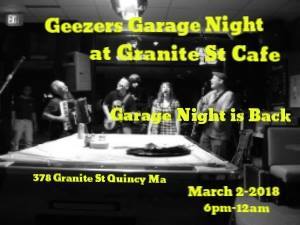 Laura Cortese has released this eighth album All In Always to showcase more of her highly skilled, multi-texture fiddle playing and composition finesse. Through it all, Cortese makes full use of color and tone, lightness and darkness, and many other nuances aside from her thrilling techniques. Billing herself as Laura Cortese & Friends was a wise choice for this recording, as her friends, coming from different nations, all lend a hand in keeping things interesting. Instruments and guest musicians on this recording include Bouzouki e flute – Xose Liz; Zanfona – Anxo Pintos; Voice e Pandeira – Chisco Feijoo; Cello – Jonas Bleckman; Guitar – Adam Johansson; Tambourine – Jens Linell; Guitar, Melodeon et Jaw Harp – Yann Falquet; Melodeon, Chromatic Harp, Podorythmie – Pierre-Luc Dupuis; and Gigue – Dominic Desrochers
Laura Cortese has released this eighth album All In Always to showcase more of her highly skilled, multi-texture fiddle playing and composition finesse. Through it all, Cortese makes full use of color and tone, lightness and darkness, and many other nuances aside from her thrilling techniques. Billing herself as Laura Cortese & Friends was a wise choice for this recording, as her friends, coming from different nations, all lend a hand in keeping things interesting. Instruments and guest musicians on this recording include Bouzouki e flute – Xose Liz; Zanfona – Anxo Pintos; Voice e Pandeira – Chisco Feijoo; Cello – Jonas Bleckman; Guitar – Adam Johansson; Tambourine – Jens Linell; Guitar, Melodeon et Jaw Harp – Yann Falquet; Melodeon, Chromatic Harp, Podorythmie – Pierre-Luc Dupuis; and Gigue – Dominic Desrochers
Opening track “Naked In Nigardsvatnet All In Alltide” moves in with a touch of darkness, foreboding. It eventually swings into high gear, turning into a brisk jam among Cortese and her band mates. There are more string melodies and low end motions flying around than one could shake a stick at, and, they are all moving in a beautifully harmonious relationship with one another toward some destination that could be as perilous as a waterfall, judging by the edge of your seat intensity they play with.
“Right Where You Want Me” has a bounce in the step that conjures images of lovers running along a greensward in grand old Ireland. A high pitched sweetness pours from Cortese’s fiddle in a way that suggests she might be playing for a grand dance, swift jumps in the notes suggesting a lot of motion. Yet, there is a tender affection in the sweeter timbre of the fiddle here, almost as if the fiddle is singing a breathless love song with its string of energetic notes.
“La Petite Marche Life Is Good Jig The Physicist” takes its sweet time emoting with forlorn tenderness. Its fiddle line, thin and pretty, get a fine accompaniment by a harmonica melody that swells with old world charm. Speaking of old world, there are some older styled chant like vocals that thicken the feel. The musicians jump into hyper drive with a free jig style approach and one can picture couples getting acquainted in an old dance hall at the turn of the 20th century. Judging by the peppy percussion tempo, one would have had to master their dance steps to keep up with this one.
“The Hunting Yuberia” begins with a spiraling sensation, an interval of fiddle notes that carry one away with their strong circular motion. Eventually, this all settles into a easeful prettiness that is as fine as birds singing on a spring morning. Fiddle lines flow like a soft, slow running brook, and a dreamy quality emerges like morning dew and the vibe is perfect. Suddenly switching to a more brisk pace, the fiddle, accompanied by assertive percussion and acoustic guitar, is driving, twisty, and it spearheads this entire rocking sensation in a relentless but pleasant forward motion.
“The Dyslexic Undresser Coffee Drunk” gets as zany as its title suggests. It starts with a pretty, drawling fiddle bounce before becoming something that zigs and zags with a mind of its own, like the fiddle is playing itself with no one at the controls to keep it from its own personal joy ride. It’s also a mad joy ride for the listener as well. A fiddle line speeds its way through traces of peppy percussion and each inspires the other to get more brisk, adventurous.
“Far Bright Star The Road Home” has a strong low end swagger that sweeps the listener into the tune while Cortese’s fiddle wiggles, sprints, and moves in a whole lot of other ways to get her melodic point across. A jumpy fiddle line move through adventurous terrain, like a run through an obstacle course, ever more brisk the more complex the tune becomes.
“Ondas E Chairas” is in a class all by itself. It rides a fiddle melody written by Cortese and is coupled with a traditional Spanish vocal melody. It features the handsome vocals of Javier (Chisco) Feijoo performing a chanting melody with a humming violin line beneath it. The contrast between vocal and acoustic instruments is striking, highlighting the ethnic beauty of each. The rich vocal, full of emotion, carries on with its own series of colors and tones. The fiddle eventually resumes prominence to create an arc with its initial introduction to this tune, and the mixing of cultures, Celtic and Spanish, proves a stunning success on this track.
“November Umbrella The Painter Gas Reel” is a nifty combo of fiddle zest and bouzouki. While the fiddle weaves a complex melody the bouzouki supports it with a chord structure that is tasteful in its brittleness. This tune contrasts free flowing melody with the solid backbone of chords, making each sound even finer by being opposites. Bouzouki is traded for flute, an instrument that keeps pace with the fiddle’s more crisp flight of fancy, like melody and counter melody, a beauteous pair that one could listen to all day, as they make quite the impression with their uptempo twists and turns.
Closing track “Mangatskrinna” finds Cortese’s fiddle bobbing along the surface of some fine zonfona drone, it’s a winding sound, as the player winds a device that replaces what would be finger picking on other string instruments, creating a tender but grinding texture. One instrument being sweet and other suggesting something serious come together to form a sound that can lull one with a comforting reassurance while hinting at all other sorts of emotions.
Cortese has come into her own as an originals artist in the last four years. Her turn toward original composition has proven a wise choice for her. The original tunes and unique arrangements of older, more traditional music on All In Always demonstrate she is an artist on the creative rise and may have come close to being a household name.

